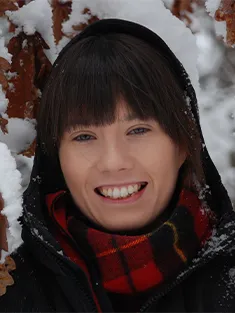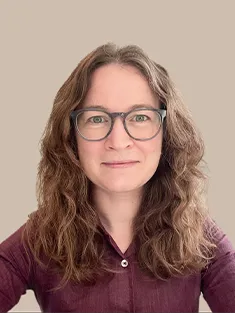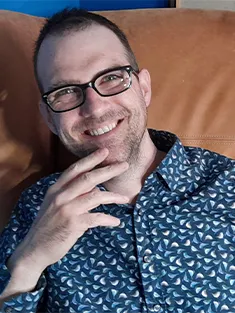Faraday open prize: Faraday Lectureship Prize
Recognising outstanding contributions to the chemical sciences in the area of physical chemistry.
Details
| Status | Closed |
|---|---|
| Nominations opening date | 15 October 2024 |
| Nominations closing date | 14 January 2025 |
| Nominator eligibility | RSC members |
| Nominee eligibility | RSC members |
| Nominee location | Global |
| Career stage | All career stages |
Research & Innovation Prizes
Our Research & Innovation Prizes recognise brilliant chemical scientists carrying out amazing work in academia and industry. They include prizes for those at different career stages in chemistry and for those working in specific fields, as well as interdisciplinary prizes and prizes for those in specific roles
Judging panel


Dr Nicholle Bell
University of Edinburgh, UK

Carmen Domene
University of Bath, UK

Dr Alexandra Gibbs
University of St Andrews, UK

Dr Brianna Heazlewood
University of Liverpool, UK

Nikolas Kaltsoyannis
University of Manchester, UK

Professor Jan Verlet
Durham University, UK
Winners
Enrique Iglesia, University of California Berkeley
For outstanding contributions to the mechanistic understanding of catalysis, leading scientific innovation for environmental protection and the production of energy carriers, fuels, and chemicals.
About this prize
The Faraday Lectureship Prize is awarded for outstanding contributions to the chemical sciences in the area of physical chemistry.
- Run annually
- The winner receives £3000, a medal and a certificate
- The winner will complete a UK lecture tour
- The winner will be chosen by the Faraday Prize Committee
Eligibility
Individuals named in any of the following roles during the nomination and judging period are not eligible to nominate or be nominated:
- Faraday Prize Committee members
- RSC Subject Community Presidents
- RSC Prize Committee members
- Trustees of the Royal Society of Chemistry
- Royal Society of Chemistry staff
Nominators:
- Only RSC members can nominate for this prize.
- Nominees may NOT nominate themselves.
Nominees:
- The prize is open to RSC members only. This will be checked by RSC staff and the nominee’s RSC membership must be confirmed at the point of nomination – it is not sufficient to have a membership application in process.
- There are no career stage restrictions associated with this prize.
- Nominees can only be considered for one of our Research & Innovation Prizes in any given year. In a case where a nominee is nominated for more than one prize independently, RSC staff will ask the nominee which prize they would like to be considered for.
- We will not consider nominations of deceased individuals.
- We particularly encourage nominations of disabled people, those who work part-time, or whose career has spanned a break for any reason – for example, a period of parental or adoption leave, caring responsibilities, long-term illness, family commitments, or other circumstances. We understand that these can impact a nominee’s career in different ways, and encourage nominators to use the space provided on the nomination form to explain the nature and impact of the nominees’ individual circumstances (see 'Guidelines for Nominators' for further details).
General information
- When nominating previous RSC prize winners, please remember that a person cannot be awarded twice for substantially the same body of work.
- Nominees should only be nominated once for this prize in any given prize cycle. In cases where we receive more than one nomination for the same nominee, only one nomination will go forward to judging.
- Since 2023, we have been trialling a process where all unsuccessful nominations will automatically rollover once, to be considered for the next round of the prize, unless the nominee's circumstances have changed to make them ineligible. This means that:
- All nominations submitted for the first time for a 2024 prize will be considered for a 2025 prize. We strongly encourage nominators to update their nomination between cycles when the nomination window is open.
- The RSC Prize Committee will review the outcomes from the trial in July 2025.
Submitting your nomination
Please use our online nominations system to submit the following information:
- Your name, contact details, and RSC membership number (please contact the RSC Membership team if you do not know your membership details).Your RSC membership must be confirmed at the point of nomination – it is not sufficient to have a membership application in process. The identity of nominators is not made known to our judging panels. The RSC reserves the right to amend nominations if necessary to ensure the anonymity of the nominator.
- Your nominee's name and contact details.
- An up to date CV for the nominee (no longer than one A4 side, 11pt text) which should include a summary of their education and career, and a maximum of 5 relevant publications or patents.
- Any information related to career breaks taken by your nominee - for example, a period of parental or adoption leave, caring responsibilities, long-term illness, family commitments, as well as any other circumstances including long-term conditions or disabilities. We understand that these can impact a nominee's career in different ways, and encourage nominators to use the space provided on the noination form to explain the nature and impact of the nominee's individual circumstances. This information will be shared with the committee, but before doing so RSC staff will always seek consent from the nominee in cases where special category data is mentioned.
- A short citation describing what the nominee should be awarded for. This must be no longer than 250 characters (including spaces) and no longer than one sentence.
- A supporting statement (up to 750 words) addressing the selection criteria. Our guidance for nominators page has more information on writing this supporting statement.
- A statement (up to 100 words) describing how your nominee has contributed more broadly to the scientific community. A list of possible examples is outlined in the ‘selection criteria’ tab.
- References are not required for this prize and will not be accepted.
The RSC reserves the right to rescind any prize if there are reasonable grounds to do so. All nominators will be asked to confirm that to the best of their knowledge there is no impediment, relating to professional conduct, to their nominee receiving this prize. All prize winners will be asked to sign the RSC’s Code of Conduct Declaration for Recognition.
Our selection committees base their evaluations on the overall quality of relevant contributions and achievements by nominees, in relation to the selection criteria listed below.
The scientific content of any supporting publications, as described in the supporting statement, is much more important than publication metrics or the identity of the journal in which it is published.
The selection committee will consider the following aspects of nominations for this prize:
- Originality of research
- Impact of research
- Quality of publications and/or patents and/or software
- Innovation
- Professional standing
- Collaborations and teamwork
- Other indicators of esteem indicated by the nominator
In an instance where multiple nominees are judged equally meritorious in relation to the above criteria, judging panels have the flexibility to use information provided by the nominator on the nominee’s broader contribution to the chemistry community as an additional criterion.
Examples of relevant contributions could include, but are not limited to:
- Involvement with Royal Society of Chemistry member groups/networks
- Teaching/demonstrating
- Effective mentorship
- Service on boards, committees or panels
- Leadership in the scientific community
- Peer-reviewer
- Promotion of diversity and inclusion
- Advocacy for chemistry
- Public engagement and outreach
The Faraday Lectureship Prize is named after Michael Faraday, an elected fellow and keen advocate of the then-called Chemical Society.
Faraday was born in 1791 in Surrey. He started work as an apprentice bookseller in 1804 where he met William Dance, a member of the Royal Institute, who helped him attend Sir Humphrey Davy's lectures. These inspired him to apply to Davy for employment and in 1813 he began as a laboratory assistant at the Royal Institute (where he would later become director). After less than a year, Faraday resigned his post in order to accompany Davy on a tour through France, Switzerland and Italy where he initiated lasting friendships with highly regarded philosophers.
On his return, in 1815, he resumed work at the Royal Institution and began research which he continued throughout his life. Published research included the discovery of magneto-electricity (1831), the great law of electrochemical composition (1833), and researches in atmospheric magnetism (1850). Some of his greatest chemical discoveries were the condensation of gases, including chlorine, and the production of new hydrocarbons, including benzol.
Faraday was highly regarded for his enthusiastic lecturing style, which often included successful experimental demonstrations. His Royal Institute lectures began in 1827 on the topic of Chemical Philosophy, and closed in 1860 with a Christmas course on the Chemical History of a Candle. Faraday was widely recognised for his contributions through numerous awards, including the Royal Society's Copley, Rumford and Royal Medals, and election as a member to all the great scientific bodies in Europe and America. Faraday gradually withdrew from active duties and died on 25 August 1867.
The Faraday Lectureship Prize was established in 1867. In 2021, the purposes of this Trust were amended, and remaining monies were combined with other generous bequests and donations to become part of the RSC Recognition Fund.
Contact our awards team
We're here to help. Please do not hesitate to contact our awards team if you have any questions.